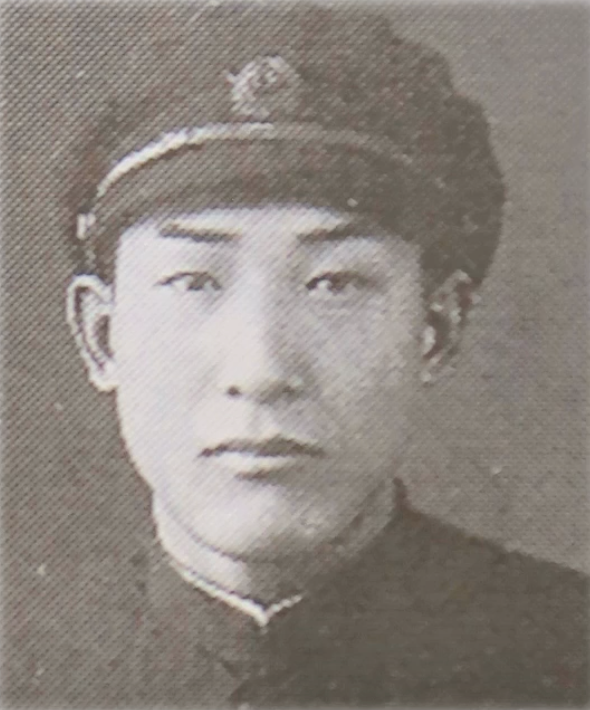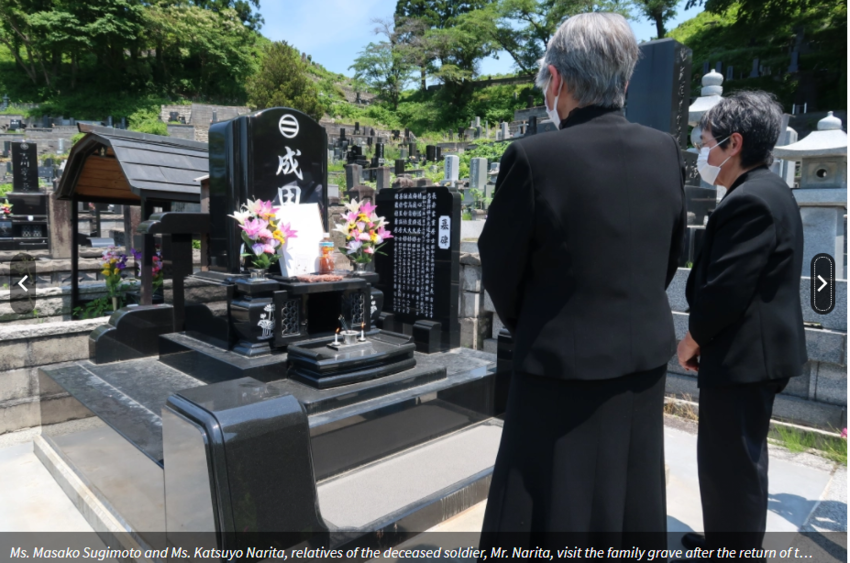

Yushirou Narita

KNOXVILLE, Tenn. (WATE) — A flag belonging to a Japanese WWII soldier has been returned to his family after 77 years. The effort to return the flag began in 2020 when the McClung Museum joined with UT’s Director of Repatriation Ellen Lofaro to return a yosegaki hinomaru to the family of the soldier who once owned it.
A yosegaki hinomaru is also known as a Japanese good-luck flag. It is a small national flag, often inscribed with short messages wishing victory, safety and good luck. They were given by friends and family to Japanese servicemen in World War II to carry as mementos from home. Following the war, some American soldiers took the flags back to the United States.
The flag was given to the University of Tennessee in 1945 by Capt. Wiley C. Smith of the 6th U.S Army. Smith, who had been stationed in Batangas, Philippines, sent the flag to UT after the university asked alumni to donate war items to create a museum on campus.
In the effort to return it, the museum learned that the flag belonged to Yushiro Narita, who served in the Japanese 19th Battalion. In October 1944, his Battalion left for the Philippines. This is where Narita died of dengue fever on Jan.13, 1945. He was in Batangas Province where Smith was also stationed.
On June 10, Narita’s family accepted the flag in a special return ceremony in Kazuno City, Akita, Japan. Narita’s niece, Masako Sugimoto, and the wife of Narita’s nephew, Katsuyo Narita, accepted the flag on their family’s behalf.
Following the ceremony, they visited Narita’s family graveyard with his flag. Yushiro Narita’s name is written on the gravestone along with other family members. They offered handmade sekihan (festive red rice) to their ancestor’s spirit and reported his flag finally returned to his home place.
“To the Japanese, the ancestors are able to hear. Their spirits are with us here on earth. When they go to the cemetery to light a candle, burn incense, and give beans and rice. This is all part of the communication with ancestors who preceded them,” note Rex and Keiko of Obon Society who assisted in the effort to return the flag.
“It was incredibly moving to hear how important and meaningful the return of the flag was to Mr. Narita’s family,” said Lofaro. “It also highlights how significant the work of repatriation is, to the families and communities involved as well as to the University of Tennessee, Knoxville. We built many new and enduring bonds of friendship and understanding through this project.
The McClung Museum says this return is an important part of the ongoing efforts to address ethical issues in collections by returning objects to its original community, family or owner. The return was made possible through the assistance of Obon Society, the Akita Prefecture War-bereaved Family Association, Ayumi Sugimoto, associate professor of rural studies at Akita International University, and the family of Narita.
“I am glad to see that returning this flag allowed the family of Mr. Narita to get some closure after so many years,” said McClung Museum Executive Director Claudio Gómez. “The return of this flag also shows how museum collections are constituted of powerful and complex cultural and natural items. The McClung Museum will keep working with different communities to address similar situations with the ethical standards of the museum profession.”
Names of East Tennesseans military veterans who gave their lives for our freedoms
The McClung Museum has sent a second yosegaki hinomaru to Obon Society in hopes that it can be returned to a soldier’s family soon. Obon Society works to connect families with personal items taken during WWII. They ask if you know of a yosegaki hinomaru, that you consider returning it by contacting them through their website.
https://www.wate.com/news/local-news/memento-of-japanese-wwii-soldier-displayed-in-ut-museum-returned-to-family/?fbclid=IwAR0mvzbEQS_M8SsMT8PTD1v-GvsA7f4OnFJQs9KS-BQ6Ww4Lrwqq1TO_ZHE